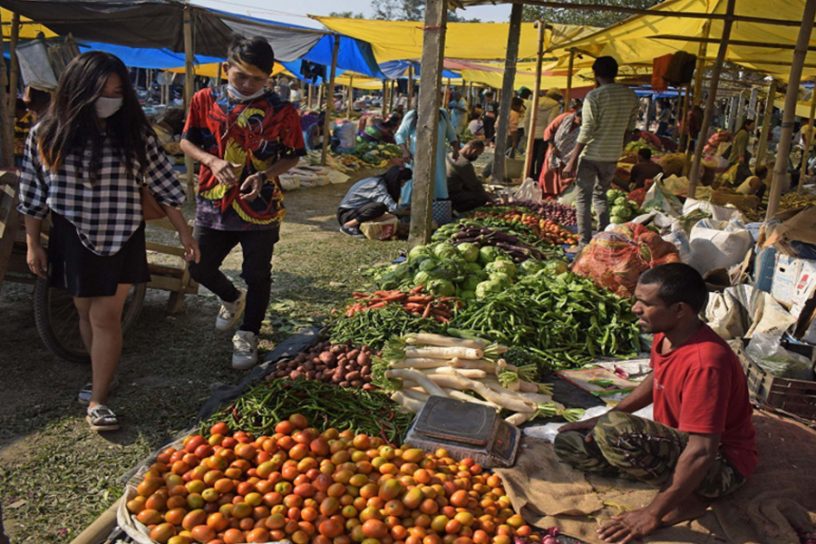
The curious case of Dadgiri-Hatisar border market provides an alternate narrative of cross-border market spaces that involve people-to-people cooperation across boundaries.
Authors
Samrat Sinha, Professor, Jindal Global Law School, O.P. Jindal Global University, Sonipat, Haryana, India.
Deepanshu Mohan, Associate Professor of Economics and Director, Centre for New Economics Studies (CNES), Jindal School of Liberal Arts and Humanities, O.P. Jindal Global University, Sonipat, Haryana, India.
Jignesh Mistry, Senior Research Analyst, Centre for New Economics Studies, O. P. Jindal Global University, Sonipat, Haryana, India.
Ashika Thomas, Senior Research Analyst, Centre for New Economics Studies, O. P. Jindal Global University, Sonipat, Haryana, India.
Summary
On a typical Thursday morning, rows of private cars, taxis and other forms of transport can be seen crossing the International Border Gate in the border town of Bhutan’s Gelephu into the village of Hatisar in India. This weekly crossing by Bhutanese citizens to visit the now flourishing border market of Dadgiri-Hatisar, located in the Chirang district in the Bodoland Territorial Region (BTR-Assam), is part of the daily transit lives of all local Bhutanese-Indians.
Yet, underlying this border crossing lies an extraordinary vision of what borders can become. In sheer size and scale, the Hatisar border market is becoming one of the largest destinations catering to Bhutanese customers and is geared towards meeting consumer demand in Gelephu (and its surrounding areas). The continuity of the market through decades of political fragility and the most recent pandemic is a testament to the resilience of the special relationship and interdependence between the people of Bhutan and India.
The border town of Gelphu, Bhutan
Gelephu is located about 30 kilometres to the east of Sarpang, the Dzongkhag (district) headquarters. Though Sarpang is the administrative centre for the Dzongkhag, Gelephu, due to various factors, has prospered and developed as a significant urban centre and market town. The weekly “international” border market of Dadgiri-Hatisar is one the major features of daily life in Hatisar on the Indian side.
While the study of international relations and international trade is purely focused on formal relations between nation-states, both disciplines tend to exclude people and communities from their purview, especially those living in border areas. Through a visual cartography of peoples, places, and markets, we study the social and economic relations that co-constitute the borderland. Observations on the local trade dynamics and shared inter-dependence of resources among local communities at the border markets hold important lessons for engendering cooperation and the benefits of peaceful, stable and open (yet regulated) borders.
Published in: The Wire
To read the full article, please click here.


